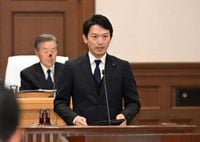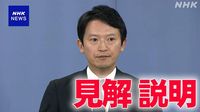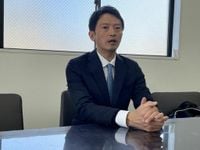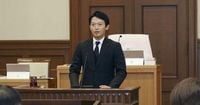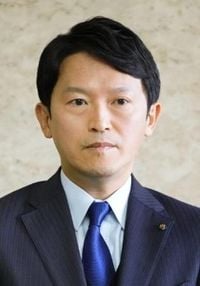In a significant turn of events, Hyogo Prefectural Governor Motohiko Saito publicly acknowledged the findings of two committees regarding his conduct in the workplace, which have accused him of power harassment towards his employees. During a session at the prefectural assembly held on March 26, 2025, his apology came in the wake of extensive reports detailing mismanagement and violations related to internal whistleblower protections.
The accusations surfaced as part of a whistleblower document that claimed Governor Saito had engaged in power harassment, a serious issue that prompted the establishment of an investigative council. This council, known as the Third-Party Investigative Committee, examined multiple claims against Saito, ultimately recognizing ten instances of power harassment. Their findings were further substantiated by a previous report from the Prefectural Assembly Investigative Special Committee, which highlighted that the governor’s actions could lead to illegal outcomes.
In his statement, Saito remarked, "I sincerely apologize to the employees for making them feel uncomfortable." He expressed that he takes the reports of both committees very seriously. The governor indicated that he would reflect on organizational aspects and his personal conduct to cultivate a more supportive workplace. Both committees emphasized the need for better management practices and treatment of staff to prevent further damage to moral and operational efficiency.
One of the more damning claims against Saito involved how the prefectural administration handled the identification of the whistleblower—a former director of civil affairs. Instead of treating the whistleblower's document appropriately, the governing body allegedly sought to uncover who leaked the information and took disciplinary action against the whistleblower without investigating the substance of the claims. The Third-Party Investigative Committee characterized this approach as "illegal" under the Public Interest Whistleblower Protection Act.
According to their official report, not only were ten allegations of power harassment substantiated, but the actions taken by the prefecture—such as retrieving a personal computer of the whistleblower—were deemed extremely inappropriate. The report outlined how Saito’s reprimands to employees were framed as “excessive” and “unreasonable.” For instance, in one recorded incident, Saito was reported to have slammed his desk in frustration while admonishing employees, a clear demonstration of behavior that crossed the line.
In light of the findings, Saito stated that it is essential to improve both the organizational structure and the individual behavior of leaders within the prefectural office. He committed to considering ways to enhance the working environment and take the employees’ opinions seriously when crafting new policies related to the treatment of whistleblowers and workplace dynamics.
Additionally, Saito faced a no-confidence motion in September 2024 but was re-elected at subsequent elections, prompting conversations about his future as governor and the public's growing frustration regarding his management practices. The cost of his re-election campaign was reported at 2.1 billion yen, raising questions about political investments and accountability in governance.
Following the release of the committee's findings, Saito attempted to clarify his earlier assertions regarding the whistleblower document, which he previously labeled as “highly defamatory.” He softened his position, stating that he recognized the concerns regarding the treatment of his employees and apologized again during the assembly meeting.
Looking ahead, Saito plans to disseminate his viewpoints on the findings in a follow-up press conference scheduled for later the same day on March 26, 2025, indicating that he will openly address the need for reforms and more genuine engagement with employees.
As the political landscape in Hyogo evolves, the governance practices of Motohiko Saito will continue to be under scrutiny. Citizens expect progressive change to ensure a more equitable and transparent governing process in their community, fostering an environment where employees feel safeguarded and valued.

